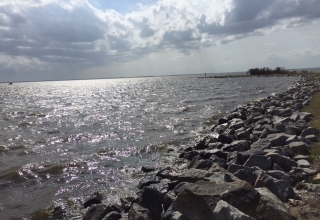
However, this technology could also be dangerous with the potential that AI may be able to identify vulnerable and susceptible individuals who could be easily influenced to join a cult movement, a terrorist organization or simply to be indoctrinated into being a “lone-wolf” murderer because they believe that their families have “serpent DNA and must be killed” (California dad killed his kids over QAnon and ‘serpent DNA’ conspiracy theories, feds claim (nbcnews.com).
Currently, there are a number of fact-checking apps and tools that are able to provide some guidance of the truth, or lack-of truth, in reported news (the app “FactStream for example). Some of these require humans – usually journalists – to provide their analysis to provide a truth-rating. Increasingly my guess is that AI technologies will enable this fact-checking/authenticity process – let’s hope!
A Risky World II: The Metaverse
A digital reality that combines aspects of social media, online gaming, augmented reality, cryptocurrencies and virtual reality is how Investopedia defines “metaverse.” Forbes magazine calls it the mirror world of alternate digital realities where people work, play and socialize.
Welcome to the metaverse–a collective virtual shared space created by the convergence of virtually enhanced physical reality and physically persistent virtual space. The term is used to describe Web 3.0, a new Internet era that will fundamentally change the way we interact in the digital world. [Convergence of AI and blockchain in the metaverse | Joseph Araneta Gamboa (businessmirror.com.ph)
The metaverse, a term coined by science writer Neal Stephenson, describes an internet-run universe where users can socialize and play in a virtual setting. For online video gamers, a metaverse may be the paradise they’re hoping for, as they can easily switch between gaming and virtual socializing. However, for many others, there are many questions and risks still needing to be addressed in the adoption of a metaverse.
The dark side of the metaverse: While companies like Facebook are now pouring millions into developing new metaverse technology, they are also the source of thousands of misinformation cases or fake news stories. Facebook in particular has been having fake news problems, and with the 2020 U.S. election specifically, was very purposeful about who could publish what.
As a metaverse will be an expansion of social sites like Facebook, it’s important to understand how misinformation might spread in a metaverse. Despite the consumer-facing version of the metaverse being more of an idea than a real thing thus far, there have already been concerns about the potential for cybercriminals and others with malicious intent.
What are the Risks and Opportunities of the Metaverse? We might find that some people start using the metaverse for criminal activities, whether for fraud, disinformation, money laundering, or child exploitation. Indeed, as research shows, the malevolent is often nothing if not creative in finding new ways to do harm, with the researchers concerned that it could even extend into terrorist activity. [(metaverseinsider.tech) ]
Download Article













